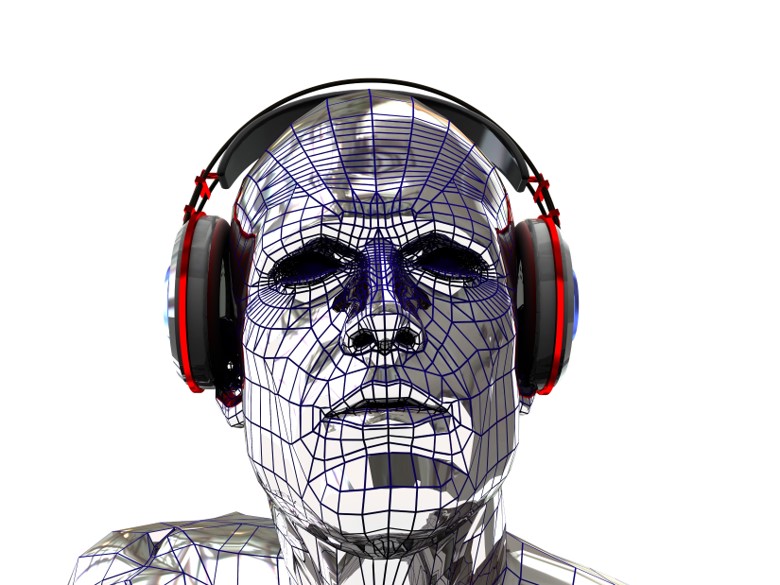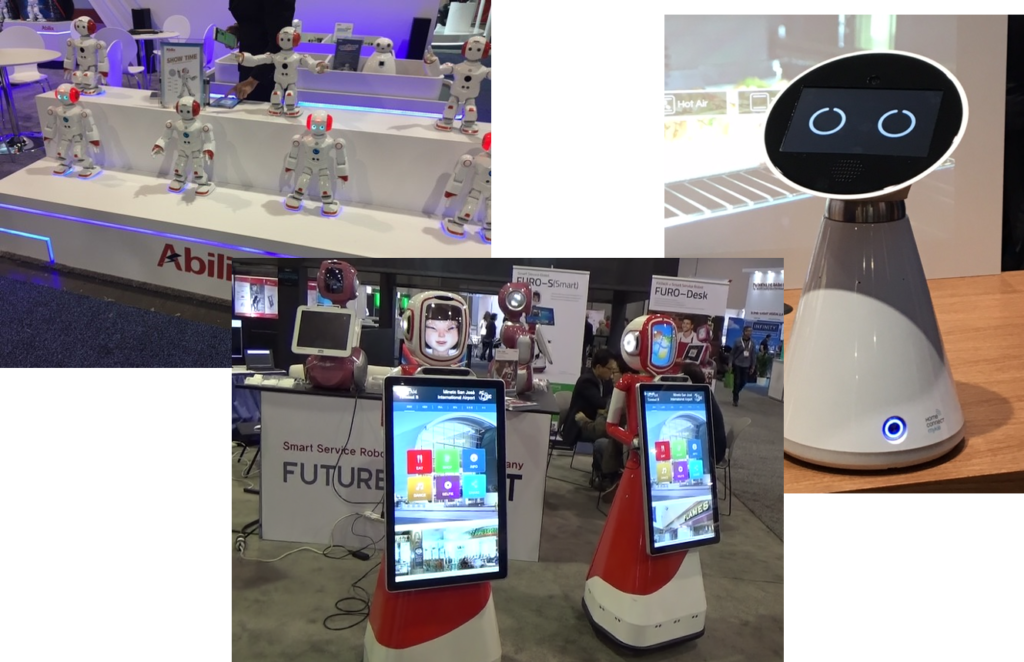
The title of today’s blog post sure looks familiar, doesn’t it? We’ve been talking about the relentless march of AI robots, ready, willing, and able to take all those radio jobs.
It’s a hot topic even we careen into Q4 of this crazy year. In recent weeks, I’ve presented data on how air personalities perceive this technology vis a vis their jobs. And earlier this week, I presented our topline findings from this year’s Public Radio Techsurvey in which we crafted a new series of questions about the potential impact of AI on public radio stations. Add to that a riveting presentation from the BBC’s Director of Research and Development, Jatin Aythora called “The Rise of AI and What it Means for Public Media.”
Thus, today’s post. Except for one thing.
It’s exactly four years old.
And yet, it’s a topic we’ve batted around for years. And while technology is like a runaway train, the elements that make for compelling radio really haven’t changed all that much over the decades. How and where we consume “radio” has evolved at a rapid rate. But how personalities entertain and inform us has been a constant. Today’s post is a reminder the more things change, the more they stay the same.
And it’s also confirmation that before there was AI Ashley, there was Denice. – FJ
September 2018
While most of us enjoyed an uneventful Labor Day Weekend, not everyone was chilling at the lake or chowing down at a family barbecue. Many Americans are actively sweating their jobs – not because of the state of the economy but because of rapid advances in robotics.
Some unexpected job categories and professionals are apparently on the robotic chopping block, thanks to production efficiencies and the rapid development of AI. This includes workers in hospitality, transportation (think autonomous cars), manufacturing, and retail. That’s a lot of jobs that could vulnerable to the Robby’s and the Rosie’s.
But even medical workers may be replaced by advanced robots, droids, drones, and automatons. As the Boston Globe notes, “Machines can monitor vitals, and devices can administer medicine automatically.” Machines are routinely reading X-rays while robots are performing surgery with precision. Who needs a doctor or a nurse?
Even your accountant isn’t safe, thanks to increased automation in tax returns and other functions that once required a pencil and paper. Software like “Turbo Tax” do the work once done by CPAs.
We’ve seen much evidence of advanced technology in recent years at CES, where robots of all sorts, shapes, and sizes perform myriad functions – whether it’s reading stories to your kids or showing you how to cook souffles. Every year, these robots look cuter and more human, thanks to their inventors serving to make them seem more approachable and accessible.

But a robot bank teller? You’d think the people behind those service windows at financial institutions would be at the top of the “endangered jobs” list, but apparently financial institutions aren’t ready to throw in the personal towel. Some of this is due to the reality that many customers still aren’t comfortable using ATMs for their banking transactions.
Still, most people would rather handle their banking themselves without waiting in line to talk to a teller. But as Bloomberg’s Emma Kinery explains, banks have learned that self-service works well…until it doesn’t. And that’s when customers expect a knowledgeable, human assistant to point them in the right direction.
While teller jobs have diminished in recent years, many banks are actually raising their salaries, training tellers to answer questions that involve financial and digital services like Uber, Amazon, and PayPal. It’s not quite the problem-solving skills of workers at Apple’s “Genius Bars,” but some banks are finding that personalized answers and even empathy simply cannot be replaced by robotic hardware and software.
The human touch is an important piece of the puzzle, and that’s why the prospects for radio employees in the robotic age look promising. A new Fast Company story – “Here are the few jobs robots won’t take from us” – by Michael Grothaus suggests that creative types are in the safe zone.
He quotes Thomas Pickersgill, CEO of Broadstone, a staffing company, who says, “Humans use their life experiences, their emotions, and their creativity to bring things to life.” Machines, not so much.
Now, a little extrapolation points to radio programming and on-air talent positions falling into the “creatives” category. Granted, radio is rarely a work of art, but whether you’re doing mornings on a Country station or news gathering at a public radio outlet, you’re using your arts and craft to create compelling radio – something even H.A.L. or R2D2 can’t pull off.
Grothaus reasons that jobs dealing in “understanding of the human condition,” as well as the skills needed to adapt to change, and the ability to connect with and empathize with others would appear to be less vulnerable to the robot workforce apocalypse.
We took this one in a big way in this space back in 2011 when a clever innovator, Dominique Garcia, introduced us to “Denise,” which he called a “virtual DJ.” At the time, there was an outcry about the prospects of a machine replacing DJs in a post called “Oh, Denise.”
You can check out Denise in action in the short video below. I hadn’t listened to her breaks in a while. And in the context of today, she’s somewhat reminiscent of a certain robotic persona we now know as “Alexa.”
At the time, Dominque Garcia was very much misunderstood. Today, you have to look back at his efforts 8+ years ago as truly innovative.
But for today’s programmers, producers, jocks, hosts, journalists, and even second bananas and sidekicks, it looks like being replaced by automated DJs like Denise isn’t about to happen anytime soon. Fortunately, these jobs still require creativity and nuance, something robots still don’t do well. Yet.
As for you programmatic sellers, you’re on your own.
- Media And Technology In 2025: Believe It Or Not! - April 18, 2025
- In Radio, You Just Never Know - April 17, 2025
- The Secret To Making A Great Podcast (And Great Radio) - April 16, 2025





In the late ’90s, I was airing a bit I called “Shecky 9000 – The Computerized Comic”; a text-to-speech (TTS) rendering of stale old Borscht Belt jokes with a cheesy laugh track. The gag was centered around the technology’s inability to add emphasis, so everything “Shecky” said basicallysoundedjustlikethis with no inflection.
In spite of clever innovations and refinements over the years, to my ear, AI voice is still just an approximation. I would rather more attention be given to talent development and coaching than to making changes to algorithms to simulate a sidekick’s upspeak tic.
You can’t replace real people. Put your money on real mouths and brains who care about communication & service.
No, you can’t. But if AI can handle the 20% (more for some, less for others) that is pure drudgery so we can make better radio, that’s the goal. Thanks, Clark.
You want to know the perfect test for an AI voice? I’m talking about this on my own show today.
Google a protein called “TITIN”: It’s an organic compound that assists human muscles in contracting (without it, we’d be gelatinous blobs). The proper science-y name for this stuff is the longest word in the world at nearly 190,000 letters, and takes about two to three hours to correctly pronounce in one pass. Lord help you if you have to start over.
Find the actual word at en.wiktionary.org/wiki/Appendix:Protologisms/Long_words/Titin#Noun
Copy and paste it into your favorite AI speech converter.
Even IBM’s Watson would look at this one and say, “**** this, I’m outa here”.
Sounds like the ultimate AI challenge, Alan. I have trouble pronouncing “schadenfreude.”
Was listening to a satellite programmed station years ago.
I’m guessing whoever was working on site failed to change the liners and the other things that made the station sound local.
So yeah, the human touch is still needed somewhere.
AI sounds great but Neil Armstrong still had to take over landing on the moon.
And AI has its flaws as anyone using it will tell you. But it’s here to stay. Question is, how will we use it. Thanks, Jerry.
Short answer: Yes, AI will replace radio jobs.
As always, the issue isn’t the technology, but how it’s used. Voicetracking also offered the promise of improvements, but look at how it is being used: not to provide quality content on air, but to simply fill time on air.
Micromanagers have trimmed and hacked their staff to a minimum, with minimum resources for the staff; shifts have been eliminated and not even replaced by voicetracking; and everything sounds bland.
When you cheapen your product, you only have yourself to blame when you get a reputation for being cheap.
PK, you are right. It’s all in how it’s used. AI can save broadcasters – especially short-staffed ones – a ton of time and money. How they put those resources together is the art. Thanks for the comment.